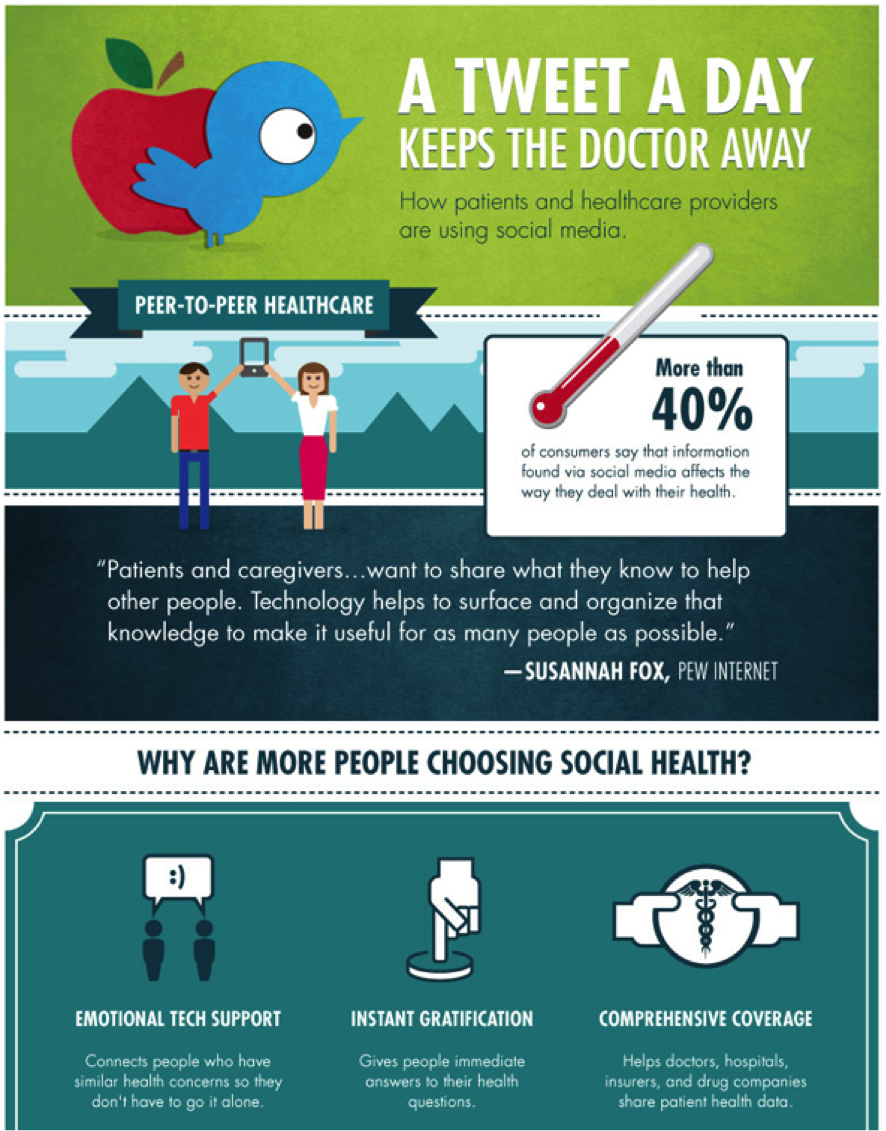Guest posting by Sanjana Puri
http://www.hhstaff.com/how-patients-and-healthcare-providers-are-using-social-media-infographic
As I was reflecting on Medical Media Arts Class, I went full circle to the beginning of the course, when we discussed the emerging shift towards digital medicine. I also came across this infographic, which I thought aptly depicted our discussion: Healthcare is facing great changes, with social media and rapidly evolving technology providing health consumers outlets to be more engaged in the process. But why exactly are consumers using social health? For three key reasons:
1. Emotional Tech Support
Users are seeking social health because it provides an online community of support. Through conversations with families at the Texas Children’s CVICU, I discovered that social media helps parents find resources to better understand and cope with their child’s disease. One mother said that it was a support system that provided answers to questions she couldn’t answer or insight when she didn’t feel ready for the next step. In fact, in a recent poll, 40% of people said information found on social media affects how someone coped with a chronic condition, their view of diet and exercise and their selection of a physician.
2. Instant Gratification
In the age of technology, we want answers, and we want them now. Technology is fast; it doesn’t work like a typical call to the doctor, where you call in, get redirected to the nurses’ line, leave a message, and then wait for a response within the next 24 hours. It’s nearly instantaneous. In fact, 49 percent of those polled expect to hear from their doctor when requesting an appointment or follow-up via social media within a few hours. Depending on the blog or social media site, users can quickly receive feedback from peers or healthcare professionals or simply search past posts to their questions.
3. Comprehensive Coverage
Patients are becoming more engaged in their healthcare, searching for the best and most comprehensive care through their online sources. While shadowing at Lewisville Pri-Med Care last year, I observed patients who brought their own ideas for healthcare from information they had read online. One patient even brought in Cologuard, a new home-screening kit for colon cancer. (Cologuard is often used to test whether a colonoscopy is a necessary next step). From a recent study, 54% of patients are very comfortable with their providers seeking advice from online communities to better treat their conditions. The patient’s doctor, who I was observing, promptly went online to search basic information, pros/cons, and insurance coverage of the kit, easing any of the patient’s concerns about its usage.

